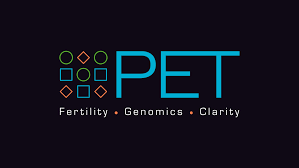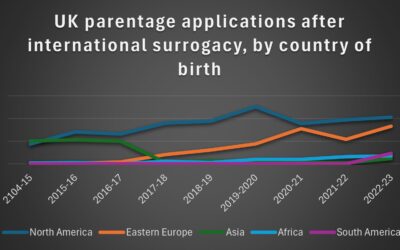Natalie was delighted to speak at the annual conference of the Progress Educational Trust on 7 December, talking about the challenges faced by LGBT+ families as part of a panel addressing ‘Are some fertility patients more equal than others?’.
What is the PET annual conference?
Progress Educational Trust is a charity which works to inform debate about issues affecting those affected by infertility, genetic conditions and assisted reproduction. Publisher of weekly Bionews, they also arrange regular events including their hugely popular annual conference each autumn.
This year’s conference theme was ‘Making Fertility Fair’, and speakers included Julia Chain (chair of the Human Fertilisation and Embryology Authority), Professor Dame Lesley Regan, and representatives of the World Health Organisation (WHO) and European Society of Reproductive Medicine (ESHRE).
What did NGA speak about?
Natalie spoke as part of a panel entitled ‘Are some fertility patients more equal than others?’ and was asked to speak about the particular challenges faced by LGBT+ (and other diverse family) fertility patients.
Natalie reflected on how families have become increasingly diverse since our fertility laws were first written in 1990, with new family structures (including same-sex and solo parents), more openness about the diversity of gender identity and expression, and growth in more diverse types of collaborative reproduction (including surrogacy, co-parenting and known donation). However, the law has, rather than becoming more flexible, simply tried to add in new family forms to the existing narrow legal framework for heterosexual couples, making the law ever more complicated while creating problems for LGBT+ families, including:
- Transgender parenting – UK fertility law has no provision for fertility patients who do not identify (or are no longer legally) in the gender they were assigned at birth, creating bizarre outcomes (including fathers registered as mothers) which do not properly reflect or safeguard children’s realities.
- Multi-parent families – It is increasingly common for children to have three or four parents in their family (particularly where gay and lesbian couples collaborate to conceive together), but the law currently has no way of recognising those families fully, since only two people can be recognised as legal parents.
- Families created through surrogacy – The main route to biological parenthood for single and same-sex fathers, UK surrogacy law is woefully out of date, with the wrong people are treated as the legal parents initially, with a clunky and slow legal process for reassigning parenthood
Natalie asked whether law reform was needed, not just in relation to surrogacy, but more widely to recognise legal parenthood on the basis of intent (pre-birth) and to enable choice in respect of the parental titles of mother, father and parent.
Leading experts in conception law
Find out more about how we support those creating families



